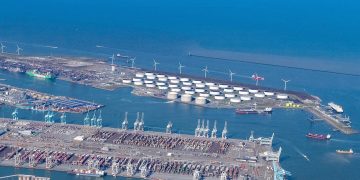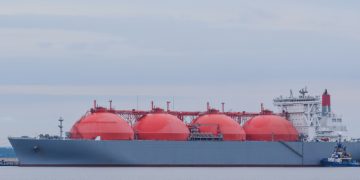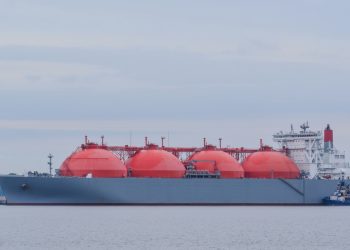During the 2025 GREEN4SEA Athens Forum, Antonis Trakakis, Chairman, CIMAC Greece, explored the challenges and opportunities for decarbonizing the maritime industry focusing on hydrogen while addressing the need for carbon capture technologies and engine innovations.
Hydrogen has long been regarded as the “dream fuel” for decarbonization, primarily because it produces no CO2 emissions when burned. However, while the potential is enormous, there are significant challenges with hydrogen, especially around its production, storage, and transportation that have made it difficult for the maritime industry to embrace it fully.
This has led the industry to explore alternatives like ammonia and methanol. Unfortunately, the production of these fuels still results in considerable emissions, and to make them viable for true decarbonization they would need to be produced using green energy, a resource that is still too scarce to meet the growing needs of shipping.
Without viable green fuels, the maritime sector may have no choice but to continue relying on fossil fuels. But that doesn’t mean there’s no hope of reducing emissions. Carbon capture technologies, which have been successfully used by other high-emission industries such as cement, steel, and petrochemicals, offer a potential solution.
Together, these industries account for 25% of global CO2 emissions, while shipping represents just 3%. Given this, it makes sense for the maritime sector to explore carbon capture as a shared solution with other industries.
Right now, the carbon capture process used on ships involves capturing CO2 from exhaust gases through a chemical absorption method. While this process works well on land, applying it at sea is much more complicated. Ships face challenges like vibrations, impurities, and varying loads, which can make the process inefficient.
Plus, the energy required to capture CO2 combined with the fact that the captured CO2 often isn’t pure enough to be useful, further complicates things.
A more promising solution could be pre-combustion capture, where fuels like natural gas are broken down into hydrogen and solid carbon before combustion. This process avoids CO2 emissions entirely and could allow ships to produce hydrogen directly on board, removing the need for hydrogen storage altogether.
CO2 capture ≠ SOx scrubbing
- The absorption of CO2 depends on its partial pressure (concentration) for example gas, which in case of marine engines is small.
- Due to its very complex nature (heat and mass transfer process sensitive to hydromechanics and thermodynamic factors), the post combustion is very sensitive to vibrations and its highly unlikely that it will perform onboard a ship.
- The post combustion is very sensitive to impurities (NOx, SOx, PM). Their presence will rapidly degrade the chemical solvent, while their removal needs higher standards than catalysts and scrubbers.
Hydrogen itself is an attractive option because of its high energy content, fast-burning velocity, and ability to work well with fuels like LNG in internal combustion engines.
Some studies have shown that adding hydrogen to natural gas engines improves combustion stability, thermal efficiency, and even reduces methane slip. But as hydrogen levels increase, combustion becomes less stable, and engine safety becomes a concern.
As a result while hydrogen can be a great alternative, engines need to be adjusted to handle higher concentrations safely.
In addition to hydrogen-powered engines, gas turbines, already capable of running on hydrogen or LNG, offer high thermal efficiency, especially in ferries and cruise ships. Fuel cells, which provide a cleaner alternative, are another option, offering power outputs ranging from 200 kW to 1–3 MW for various types of vessels.
Another alternative, LNG, has its own benefits. It offers longer compliance periods, and a lower overall cost compared to traditional fuels, and its compatibility with existing technology reduces the need for costly infrastructure changes.
As the shipping industry becomes more competitive, the focus will increasingly shift from simply reducing fuel consumption to finding ways to balance both fuel and compliance costs. This shift will be key to ensuring the sector’s long-term sustainability.
The road to decarbonization in the maritime industry is challenging but it’s clear that exploring alternative fuels like hydrogen, ammonia, and methanol is essential for reducing emissions.
Moving forward, the industry’s focus must be on balancing fuel and compliance costs while adopting new technologies. By embracing these innovations and working together across sectors, shipping can play a pivotal role in the global transition to a low-carbon industry.
The views presented are only those of the authors and do not necessarily reflect those of SAFETY4SEA and are for information sharing and discussion purposes only.
Above article has been edited from Antonis Trakakis’ presentation during the 2025 GREEN4SEA Athens Forum.
Explore more by watching his video presentation here below



























































